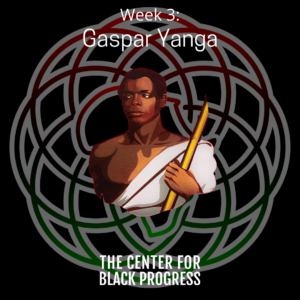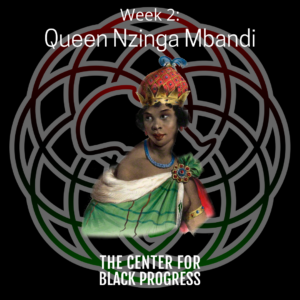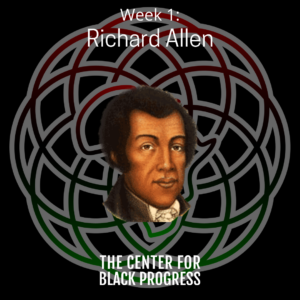
The Ancestor's Story

Richard Allen was born as a slave in 1760, and grew up on a Delaware farm. In 1786, he came across traveling preachers and heard them say that slavery was a mortal sin. He devised a plan to make his master, a fairly religious man, accept this fact and issue him his freedom.
He convinced the anti-slavery preachers to visit his master’s house. The preachers visited and informed the master that he’d be going to hell for his sins. This was highly unusual and seemed to be of divine providence, given the role of White Christianity’s historic role in reinforcing the moral rectitude of slavery. Soon after, this master allowed Allen to buy his family’s freedom.
Newly liberated, Allen became a preacher himself, spreading the message of equality. He moved to Philadelphia, PA in the winter of 1786. At the time, this was the largest city in the US, and one that had abolished slavery. However, Allen soon discovered that freedom did not translate to equality. After being invited to preach at a White church, he was dismayed to find the church congregation racially segregated. After overcoming absolute bondage and acquiring a might faith along the way, he vowed to change it.
Soon afterwards, Allen led a group of worshipers through the church doors right down to the front pews–the “White only” pews. They sat and prayed at length, ignoring repeated promptings from White clergymen that they move to their “appropriate” section. After praying, Allen led his group straight back out of the church, never to return. This was the first sit-in American history.
Allen resolved to start his own African church, the first of its kind in the US. With humble beginnings, he purchased a steelsmith’s shed, dragged it onto a vacant lot, and set up a temporary parish. Over the next 23 years, he fought to make it permanent. His church, The African Methodist Episcopal Church, lives on today with 7,000 congregations worldwide.
The Ancestor's Achievements
- Engineered his own freedom and that of his family through rock-solid faith and strategy
- Staged the first sit-in in American history
- Established the first African church in America, the African Methodist Episcopal (AME) Church
- Created an institutional legacy that has lasted 200+ years and counting
- Indirectly helped to start the Civil Rights Movement:
- Influenced Rosa Parks, a stewardess in an AME church in Alabama. Undoubtedly, she and her colleagues were influenced by their ancestor’s revolutionary acts
Keys to Greatness
Richard Allen challenged slavery head-on and won. Being in a state of bondage was a part of his life from day one, but he yearned for freedom and took decisive action to acquire it.
By understanding and living in his passion, Allen found his vocation, his calling, in the church. This passion-centered living allowed him to identify and discard White supremacy as false teachings, something not of God.
Richard Allen diligently pooled the money needed to purchase the steelsmith’s shed for the church. As a result, he produced a unique and authentically African expression of faith.
Richard Allen was so hungry, so eager to create a place to worship God–the right way–that he gave no second thought to starting small with the resources he had. He unashamedly established a pathway to vision in the quickest manner, then maintained a concerted effort to grow the fruit of his labor.



